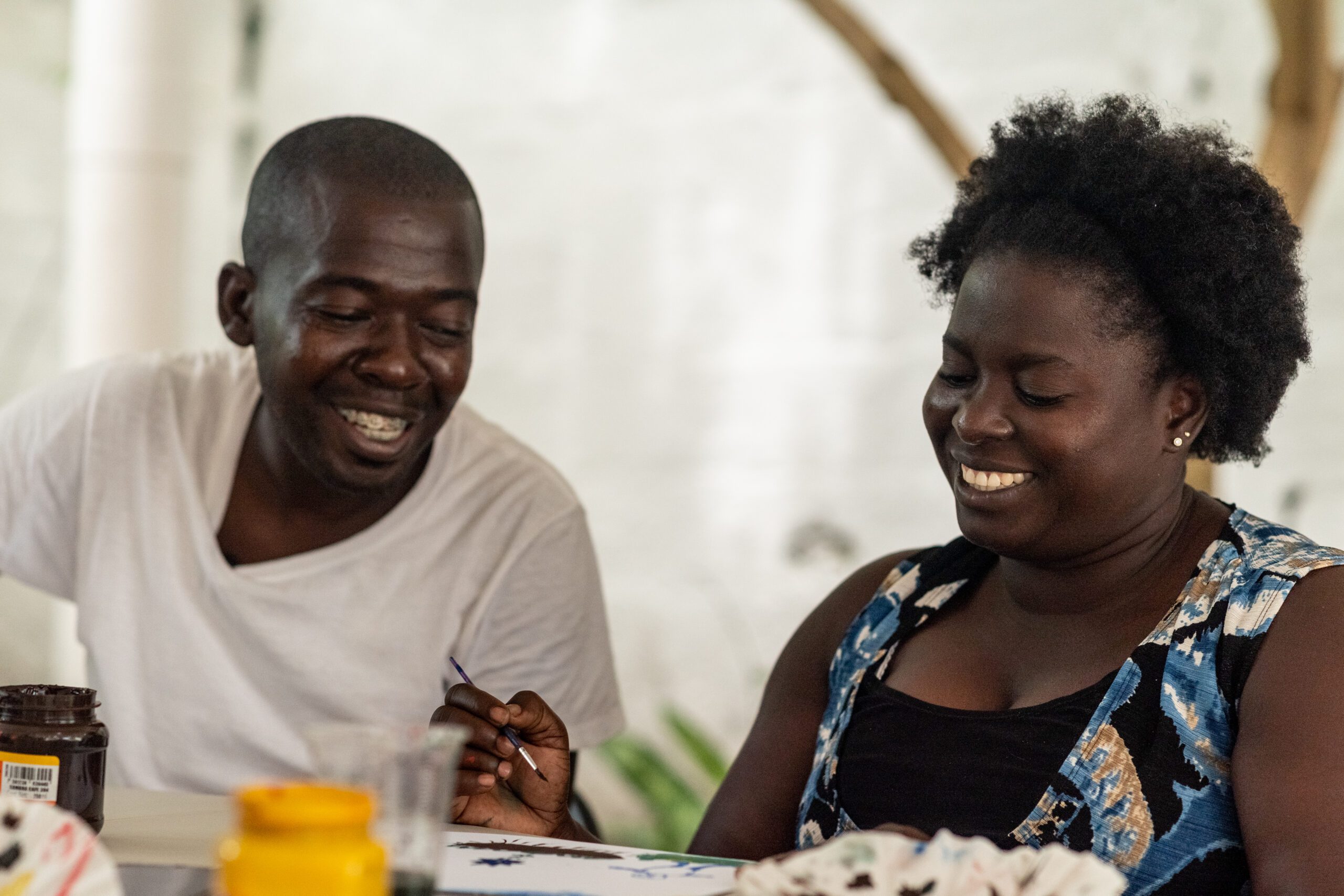Newcomer service providers in the U.S. face challenges in meeting the diverse needs of ORR-eligible populations, including when serving non-refugee groups such as Cuban and Haitian entrants (CHEs). These newcomers have different eligibility criteria compared to refugees. Service providers frequently report unmet client needs and service gaps, leading to confusion and frustration as they strive to provide support. While no single solution exists, this blog post will discuss actionable recommendations that service providers and community-based organizations across the country have developed to better support all ORR-eligible clients, with a focus on Cuban and Haitian entrants.
1. Learn About Program Eligibility and Availability in Your Area
Navigating the intricacies of program eligibility is challenging for both providers and clients. While CHE clients are eligible for ORR-funded programs and services, their circumstances differ significantly from those with refugee status. Consequently, the services available to them are often more limited.
CHE clients are eligible for Refugee Cash Assistance (RCA) and Refugee Medical Assistance (RMA) for up to 12 months from their date of eligibility. Those with employment authorization documents (EADs) are eligible for employment services. However varying program availability in each state means that it is not possible to generalize about programs CHEs can universally access.
It is important to consult with your supervisor, others in your organization, or your State Refugee Coordinator’s office to learn about how ORR-funded programs and services operate in your area. In addition to program availability, there may be relevant processes or potential barriers (such as long waitlists) that Cuban and Haitian Entrants encounter.
To learn more, see:
Switchboard’s information guide Understanding Immigration Context and Eligibility for Cuban and Haitian Entrants (2024)
- ORR’s Policy Letter 16-01 – This policy letter provides a complete list of ORR-eligible populations.
- ORR’s Policy Letter 16-01, documentation guide – This policy letter provides a list of documents that show statuses conferring eligibility for ORR programs.
- ORR’s Policy Letter 16-01 FAQ – These FAQs address complex Cuban and Haitian Entrant eligibility scenarios.
- ORR fact sheets – These fact sheets provide information on ORR eligibility for selected populations.
Do you have detailed questions about ORR eligibility? ORR can help! Email RefugeeEligibility@acf.hhs.gov.
2. Provide Accurate Information
You may feel ill-equipped to fully support CHE clients due to limited resources. However, providing trusted, reliable information and setting clear expectations are valuable tools in serving CHE clients effectively.
Inform CHE clients about the ORR-funded programs and services they may be eligible for, relying on your organization’s policies for intake and eligibility assessment. Be as clear as possible when sharing information on programs, timelines, etc., and break complex processes into smaller steps for ease of understanding. If clients ask questions about programs for which they are ineligible, respond with as much clarity and transparency as possible.
Provide relevant information about how immigration status may impact program eligibility, including the following points. This is general information and you should present it as such, making clear that it is not legal advice.
- Cuban and Haitian Entrants, like all immigrants, have rights in the United States. Share resources with clients such as the ACLU’s Know Your Rights Resources for Immigrants (also available in Spanish).
- CHEs do not have permanent legal status and should prioritize finding a legal service provider for a legal consultation or intake, especially for filing any immigration-related forms such as the Employment Authorization Document (EAD).
- Clients should attend all of their court hearings to ensure they do not receive a removal order, even if they have yet to find an attorney, and they can request additional time from the court to find legal representation.
- Some CHEs may be in removal proceedings. This means they must appear before an immigration judge to apply for relief such as asylum or family reunification. During this process, it may be difficult to access resources such as housing assistance or legal services.
3. Connect CHE Clients to Legal Aid and Community Resources
Given the lack of permanent immigration status for most CHE clients, referring them to a legal service provider should be a top priority. The National Immigration Legal Services Directory can help locate legal services in your area.
Also check out client-facing resources created by trusted and reliable nonprofit organizations like the Asylum Seeker Advocacy Project and Haitian Bridge Alliance Migrant Resources.
Tap into existing coalitions or work to build local coalitions for referrals throughout your community. For example, health care fairs or community clinics can provide much needed, and often overdue, medical services. Local organizations often have longstanding relationships with underserved populations and can provide good insight into additional services CHE clients could benefit from.
Refugees, immigrants, and migrants who do not qualify for federal benefits may still be able to access basic needs and other services and supports through state-funded or privately funded programs. People can get help finding various services, supports, and resources by calling 2-1-1, which operates in all 50 U.S. states. Interpretation is provided, as is TTY for those who are experiencing deafness or are hard of hearing. People needing interpretation should say, “No English. I speak [Name of Language].”
For more on finding services available in your area, see the following resources:
- Findhelp.org (formerly Aunt Bertha), available in dozens of languages
- Refugee Welcome Collective’s State-by-State Resources for Newcomers and Sponsors (2024)
- Switchboard’s Community Resource Mapping Templates (2019)
4. Use a Trauma-Informed Lens
When navigating difficult client conversations, including discussions about eligibility, it is essential to use a trauma-informed approach. Here are some recommendations:
- Explain to clients and state in your client rights form that your program serves and respects clients of all nationalities and backgrounds.
- Solicit clients’ input in setting goals and making decisions. Ask questions like, “Which of these things is most important to you? What would you like to work on first?”
- Do your best to answer questions that arise. If you don’t know the answer to a client’s question, it is okay to respond by saying, “Good question. I don’t know the answer…” and share resources for the client to explore independently or explain how you will follow up later.
- Remember that it is normal for clients to react with frustration or disappointment when working through complex systems and encountering barriers. Validate concerns and feelings. You might say, “That sounds really difficult. Many people find this process frustrating. It’s normal to feel upset.”
For more, see Switchboard’s information guide Trauma-Informed Care: A Primer for Refugee Service Providers (2023), Switchboard’s webinar A Trauma-Informed Approach to De-escalation and Crisis Response (2023) and the IRC’s e-learning module De-escalation in Resettlement, Asylum, and Integration Settings (2021).
Conclusion
While these recommendations will not eliminate the service gaps and access barriers CHE clients face, they can help providers and clients navigate them. The more you are informed about service gaps, overall challenges, and the clients’ context, the more you can continue to seek alternative solutions. For more resources about serving Cuban and Haitian Entrants, please visit Switchboard’s Library.









